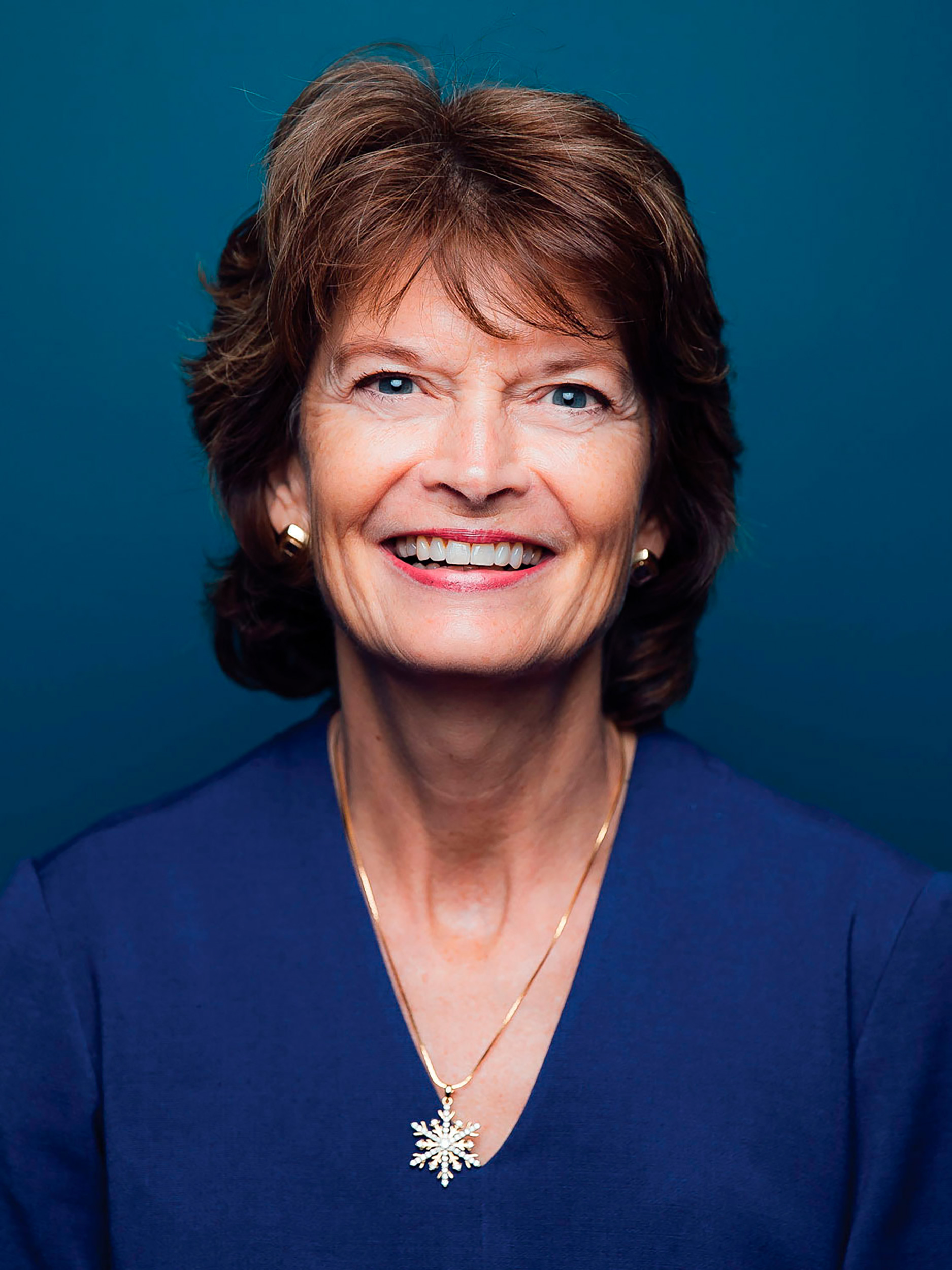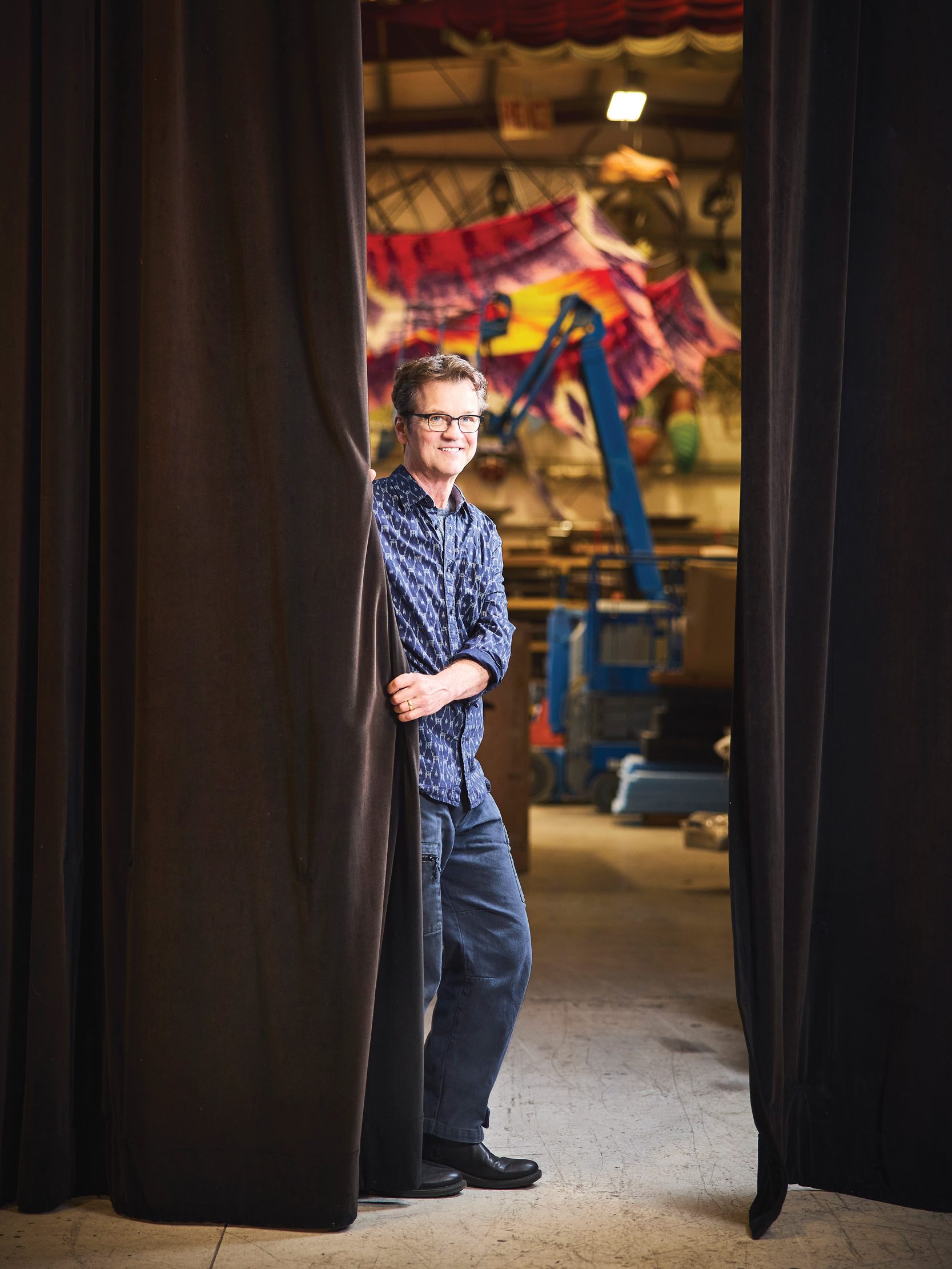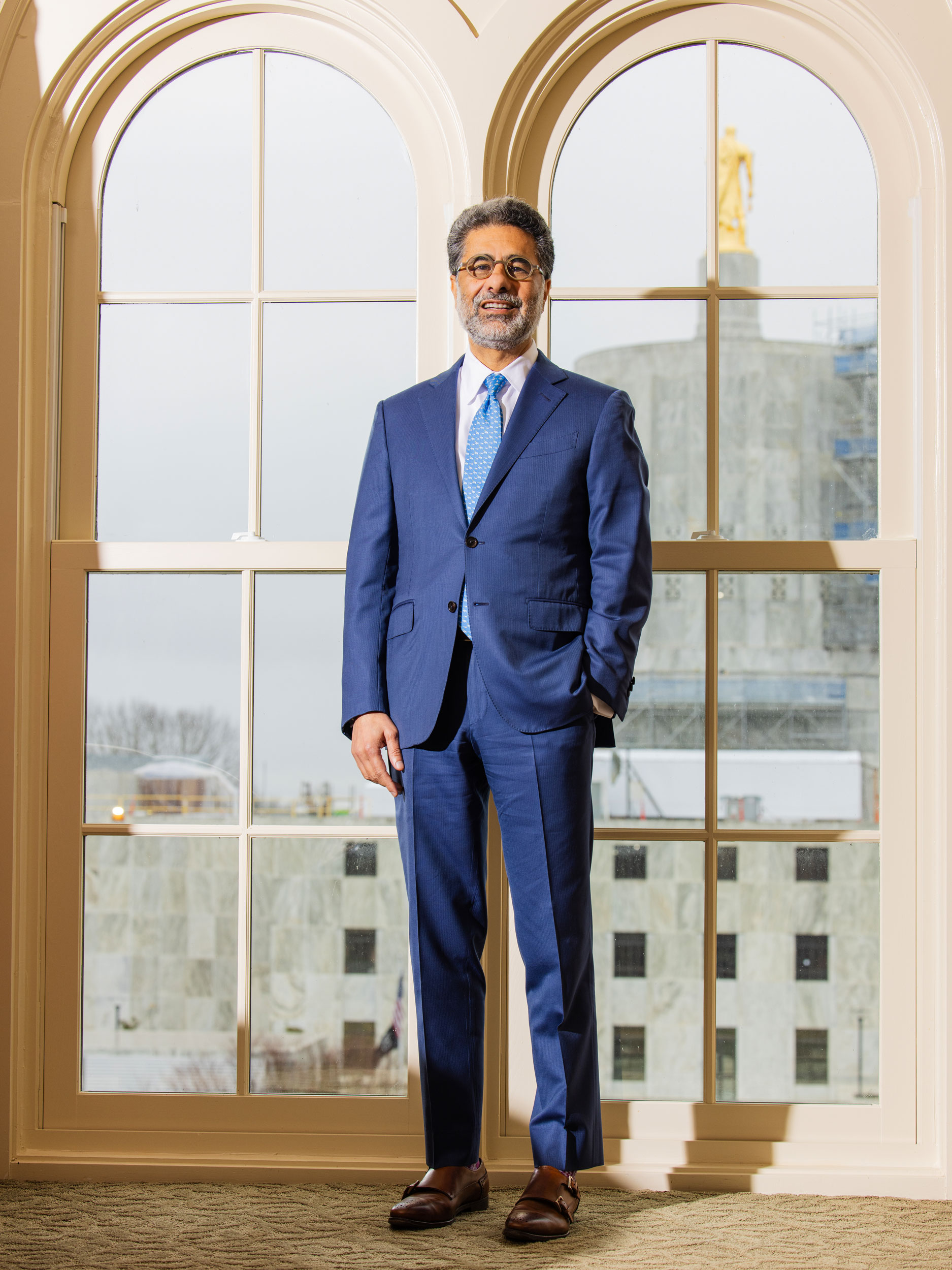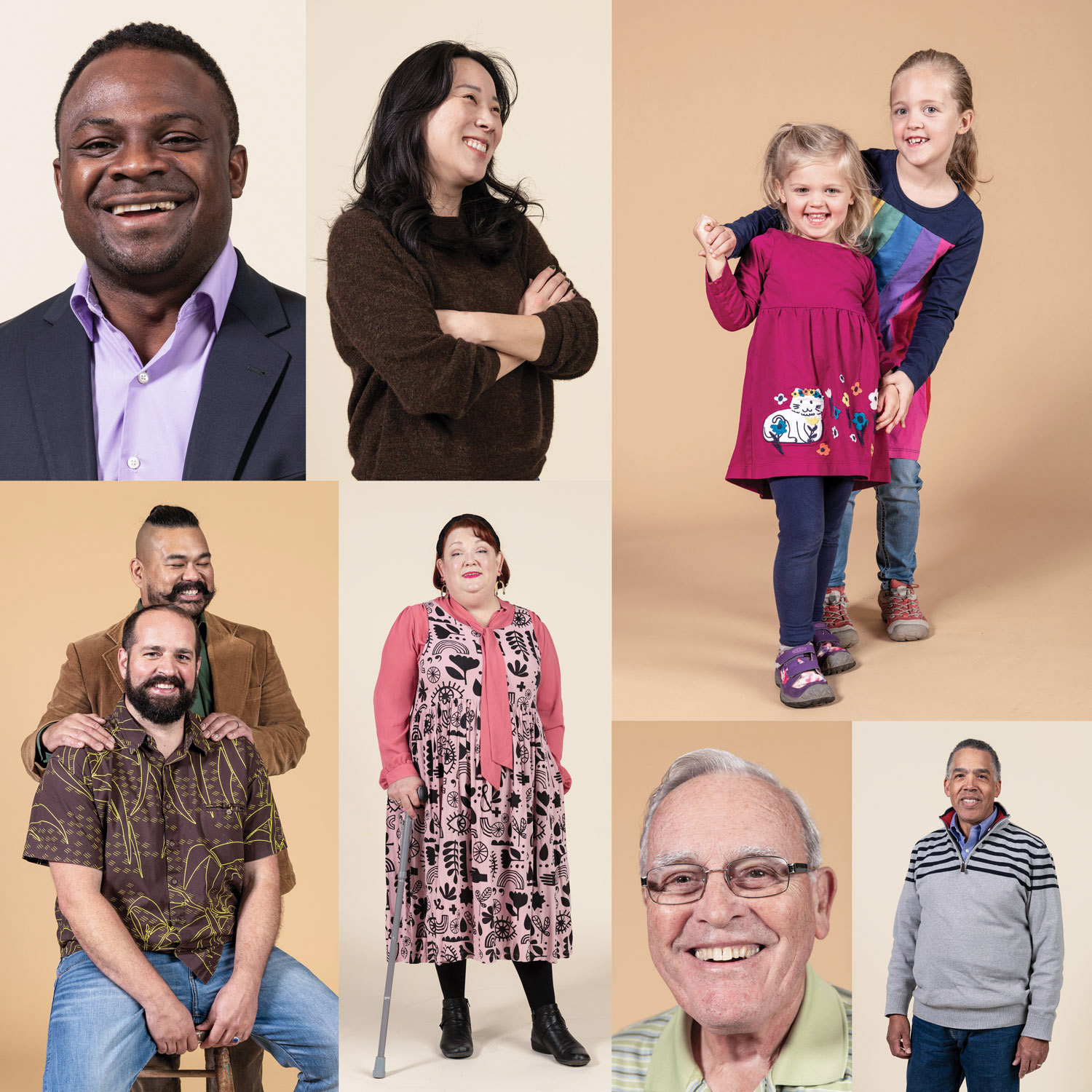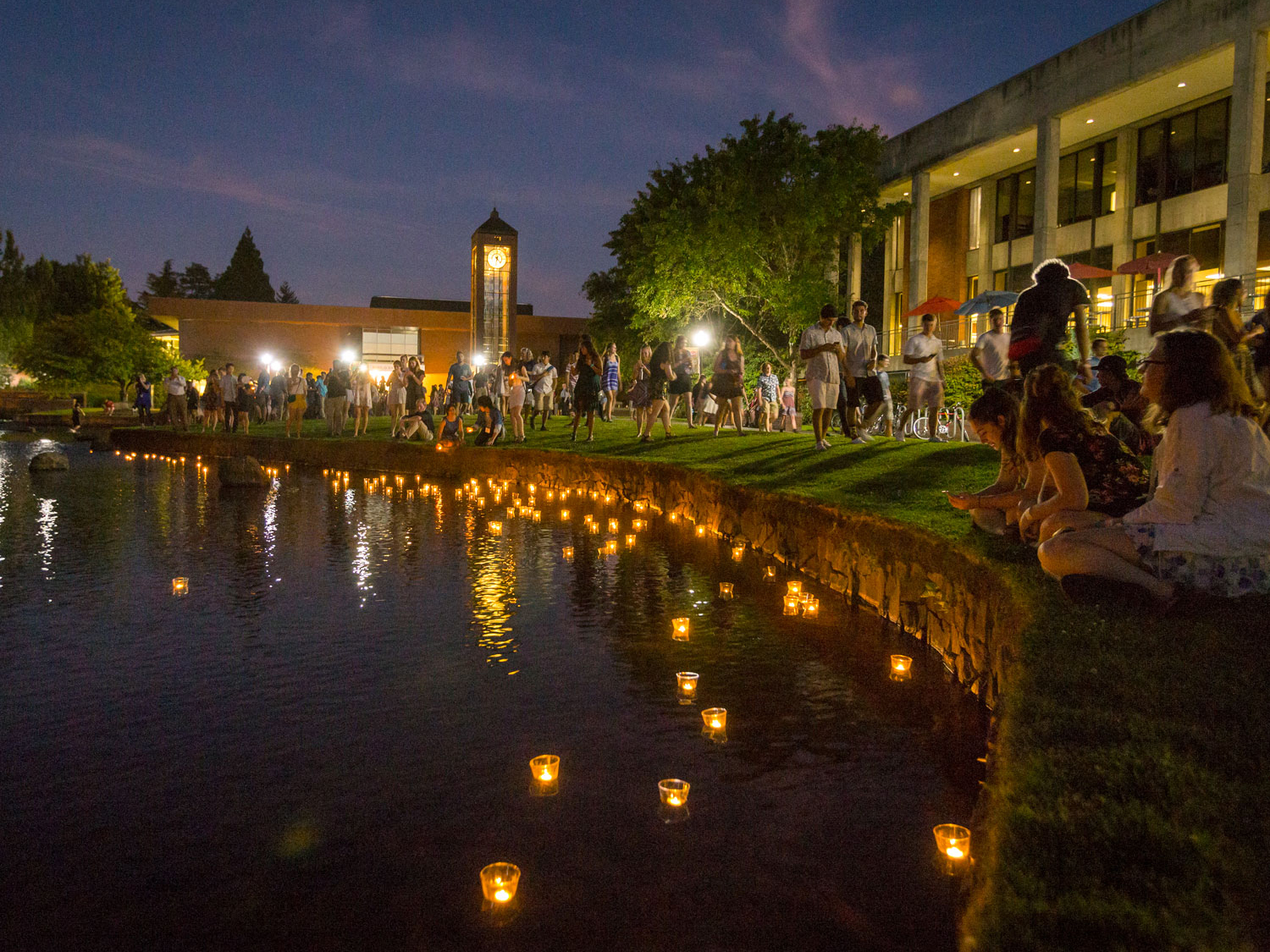For U.S. Sen. Lisa Murkowski JD’85 (R-Alaska), Willamette is a family affair: her mother, Nancy, was in the class of 1954, and son Nicolas Martell graduated in 2019 with a JD and an MBA. She has a brother and two sisters who are alumni, and her uncle was in the class of 1950. Murkowski was appointed to the Senate by her father, who resigned the seat to become governor of Alaska. She was elected to a full term in 2004, and then, after losing a Republican primary in 2010, held onto the seat with a hard-fought and rare write-in campaign. She was one of seven GOP senators in 2021 to vote to impeach then-President Donald Trump—and the only one who faced re-election in 2022. She won that race with 53.7 percent of the vote, following the state’s ranked-choice tabulation. Murkowski spoke to the magazine on June 17 at Portland’s Heathman Hotel.
You’re a centrist in a party that has seen what were once fringe ideas become mainstream. How do you articulate your vision of the Republican Party right now, in this time of extreme polarization?
I think that both parties right now are struggling with the pull from the extremes. The Republican Party right now is trying to define who they are. I think it is very dangerous for any party to be defined as the party of an individual, and for us as Republicans right now to be the party of Trump is very limiting and I think will in the long term do great damage to our party. We’re a party that has good, solid fundamentals. Whether you call yourself a Ronald Reagan Republican or choose not to align yourself with any individual, think about the things that defined us: Less government is better, financial responsibility, lower taxes, personal freedoms, a strong military. The fundamentals are still good and sound, but I think we’re struggling right now as a party. And so where I fit in as a centrist is as one who hasn’t strayed from those principles that I think once clearly defined the Republican Party. I think people have chosen to look beyond the principles, to align themselves with an individual. And I think that can have a dangerous outcome for the health of the party going forward.
What alarms you about what you saw in person on January 6, 2021, and what kind of threat do you see to democracy?
What alarms me is that some us who were there, who saw it all, seem like they’re shoving that shared reality of what we went through into the recesses of their minds, to either forget about it or to create perhaps a different view and a different vision. It is what it is. It was an attack on our democracy. It was an effort by a president to hold on to power even after he had lost. And one of the things that was made clear through the hearings is that he knew he lost, and those around him knew he lost. And he still continued to push that myth, to push that lie. We have to be clear-eyed about our facts, even if we do not like them, even if it shines a really troubling light on a person. Just because you like somebody’s policies does not mean that you can condone an effort to overturn an election and to overthrow a democratic process.
What can you do to coax people back to what you called a Ronald Reagan Republicanism, a Lisa Murkowski form of the party?
What you can do is not give up. And believe me, I’ve had so many people say, “Why are you still a Republican?” It’s because I am one who believes that government is not the answer to all of our problems, that empowering individuals is where we need to be. I’m not leaving the party; I believe in the fundamental core of the party. But I also believe that the way to get back to these principles is to stay true to those principles. You’ve got to be willing to stand in the middle at a time when you’re being dragged off to the extremes. And it’s hard when you are standing alone in the middle, when you are targeted by people within your own party who say you are not a true enough Republican.
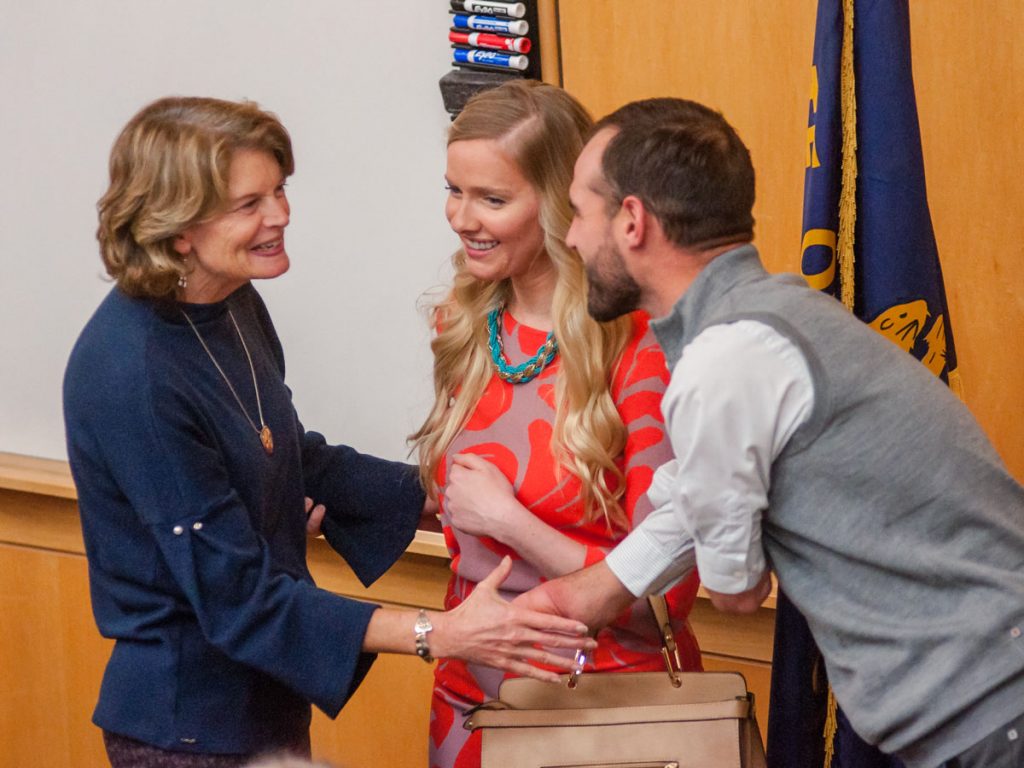
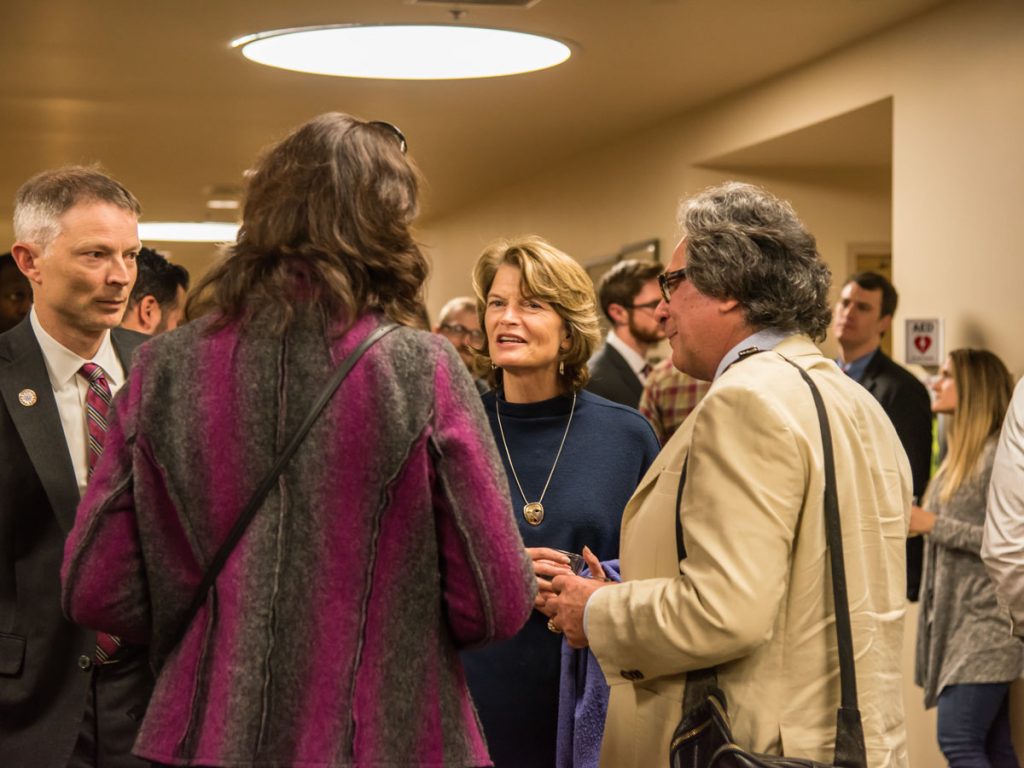
↑ Murkowski at Willamette College of Law in 2018. “The Senate by its design is supposed to get us to consensus,” she says.
___
Earlier this year you talked on the Senate floor about your support for the filibuster. You said, “This is supposed to be hard.”
The Senate by its design is supposed to get us to consensus. Whether it is election reform, whether it’s abortion, whether it’s guns, whether it’s immigration, if we try to muscle through on a strict party-line basis, it’s not enduring. If we’re going to do something serious on climate, for example, the worst thing we could do is force it on a party-line basis, because then you’re not going to have the level of investment that you need from the private sector to move forward with the initiatives. They’ll be waiting to see: Is the presidency going to change? Are we going to have a change in policy? Is the House or Senate going to flip? That’s why the infrastructure bill is so significant for this country. It was a bipartisan effort, and it enjoyed the support of almost seventy members of the Senate. It then became political in the House. Why? Because you had a former president who was not successful in moving it. I think it was a situation of sour grapes, and so he worked hard to try to convince Republicans that it was a bad vote.
Could you take us behind the scenes of the kind of bipartisanship that you’re talking about?
In November [2020], it became very clear that, with the majorities changing, leadership in the House and Senate had no desire to move forward another increment of COVID relief until they were sworn in and could direct things on their own. I recall a conversation on the floor of the Senate with Mark Warner [D-Va.]. I said, “You know, Alaska has been really, really, really hard hit. Our economy was slammed when the tourism sector was entirely shut down. We are hurting.” And he said, “You know, we’re not doing so well here in Virginia either.” This was right after the election. And we said, “You know what? We can’t sit back. We can’t wait for leadership.”
He invited four Democrats. I invited myself and three others. We went to dinner at my house. He bought dinner. I hosted. It was COVID, it was cold. We had to open the windows. We sat in a big circle, and we talked about whether we could actually do something. Dick Durbin [D-Illinois] was the only one in the group who was on leadership.
We introduced the framework in early December. Leadership didn’t like it, because it put them in a position where they were not in control, but as it got legs, they realized it had support from the public. And they took our framework and we passed the bill. As a very small group, we were able to show leadership that there was a path.
When the president introduced Build Back Better, we started talking again. We said, Is there something we can take from this and build out a bipartisan package? We expanded our group to ten. We met in different hideaways; we’d go out to dinner. And it was hard. There were many times when somebody said, “I’m done.” Like any relationship, you don’t want both of you to get fried at the same time, because then you both can walk away. But everybody was in different phases of meltdown at different times. What we did was we built a trusting relationship. We listened to one another. We had good debates about how much was being spent on mass transit. It was hard, hard work. But the outcome, I think, has been extraordinarily positive.
So this all started with dinner at your house?
That’s true. Everything starts with food, right?
Can you take that pattern and put it to some of the other hard things that you face right now?
We’re doing that right now. If we can’t do full election reform, are there parts of it that we can address, and on a bipartisan basis? We said, “We’ve got to reform the electoral count act.” It’s not the same group, but it’s the same component pieces. Is there a way that we can do something with immigration? Is there a way that we can do more with some other knotty issues? Gun control is a model. It takes us out of the committee structure, which, as a big committee person, I wish we weren’t doing, but in fairness, some of our committees are not very functional right now.
Any advice for Willamette students or young alumni who are looking to follow a path of political leadership?
Don’t wait for a convenient time to become engaged in any level of political activity. There’s this sense that I have to have a certain resume. I have to have achieved certain things. But if you’re letting that hold you back, you’re probably going to remain held back. So put yourself out there and test yourself; go outside your comfort zone. Everybody’s waiting for the right moment, and there really never is one. You’ve just got to jump.
••
Erika Bolstad , a journalist in Portland, was the Washington, D.C., correspondent for the Anchorage Daily News from 2007 to 2011.
